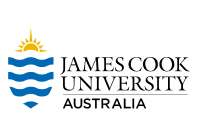Are you considering pursuing an MBA in Australia but wondering what career opportunities it might offer? With the rising demand for business professionals with advanced degrees, an MBA can be a valuable asset in today's job market. But what exactly can you do with an MBA, and how can it benefit your career? This article will explore the potential career paths and benefits an MBA can offer in Australia.
An MBA degree can open doors to a wide range of career opportunities, from finance and consulting to marketing and entrepreneurship. With its focus on leadership, strategic thinking, and business acumen, an MBA can equip you with the skills and knowledge needed to succeed in various industries.
According to a recent survey, MBA graduates in Australia earn an average salary of $120,000 per annum and have a higher chance of securing executive-level positions than their non-MBA peers.
But an MBA is not just about career advancement and financial benefits. It can also provide you with unique experiences and networking opportunities that can shape your personal and professional growth. In this article, we'll delve deeper into the different career paths an MBA can offer in Australia and the potential return on investment.
So, whether you're a recent graduate or a seasoned professional looking to upskill, join us in exploring the world of MBA careers in Australia.
Quick Links To Master Of Business Administration Online Programs
RMIT
Master of Business Administration Online
- 2.7 years part-time. Reduced duration available
- $4,560 per course, FEE-HELP available
- Jan, Mar, May, July, Aug, Oct
Southern Cross University
Master of Business Administration Online
- 2 years part-time
- Jan, Mar, May, July, Aug, Oct
- $2,990 per unit, FEE-HELP available
UTS Online
Master of Business Administration Online
- 2 years (minimum)*, Part-time
- 12 subjects | 7-week study blocks
- $4,250 per subject**, FEE-HELP available
James Cook University
Master of Business Administration Global (MBA Online)
- $3,700 per subject , FEE-HELP is available
- 24 months, Part-time
- 12 (One subject per each 7-week study period)
Overview of the MBA Program in Australia
One of the most common and often pursued types of postgraduate education in Australia is a Master of Business Administration degree. The Master of Business Administration (MBA) programmes in Australia are intended to equip students with a solid foundation in the fundamentals of business, as well as the practical skills and experience necessary to be successful in their careers. The following is a list of important aspects that are included in MBA programmes in Australia:
1. Program Length
The duration of a Master of Business Administration (MBA) programme in Australia might differ from university to university and from programme structure to programme structure. While the MBA programmes offered by some institutions can be finished in 12-18 months if they are attended full-time, the MBA programmes offered by other colleges can take up to 2-3 years to finish if they are attended part-time. In addition, some programmes provide adaptable educational opportunities, such as classes held in the evening or on the weekends, to meet the requirements of working professionals.
2. Program Structure
MBA programmes in Australia typically follow a well-organised curriculum that provides instruction on fundamental aspects of business, including accounting, finance, marketing, and management.
There is a possibility that certain programmes will also provide specialised training in topics such as entrepreneurship, innovation, and environmental responsibility. In order to give students real-world experience, some MBA programmes offer "practical components" in addition to traditional classroom instruction. These "practical components" can take the form of internships, consulting assignments, or even business simulations.
3. Entry Requirements
It is possible for the entry requirements for MBA programmes in Australia to differ from university to university and from programme structure to programme structure. In most cases, prospective students are expected to hold a bachelor's degree or its equivalent, in addition to a minimum of two to three years of relevant professional experience.
In addition, students may be required to submit their scores from the Graduate Management Admissions Test (GMAT) or the Graduate Record Examination (GRE), as well as their scores from an English language proficiency exam and letters of recommendation.
4. Cost
The price of an MBA programme in Australia can change from institution to university, as well as depending on the format of the programme. The cost of an MBA education in Australia can range from $30,000 to $100,000 AUD yearly. Yet, a lot of universities provide financial help and scholarships to students who qualify.
5. Accreditation
The Association to Advance Collegiate Schools of Business (AACSB), the European Quality Improvement System (EQUIS), and the Association of MBAs are some of the organisations that have certified MBA programmes in Australia (AMBA). The programme must demonstrate that it satisfies rigorous academic requirements and offers students a high-quality education and training experience to be accredited.
An MBA degree, in general, can be a worthwhile investment in your professional life because it equips you with the skills and information you need to succeed in various fields of work. Suppose you are thinking about enrolling in an MBA programme in Australia. In that case, you should do your homework and investigate the many universities and programmes available there to determine which one is the most suitable for you in terms of how well it will help you achieve your professional objectives.
Management and Leadership Roles
Employers in a wide variety of fields in Australia have a high demand for MBA graduates due to their great business acumen, strategic thinking skills, and leadership talents. MBA programmes in Australia are becoming increasingly popular. MBA graduates in Australia have the opportunity to pursue a variety of management and leadership roles, some of which are listed below:
1. General Manager
General managers are the individuals inside a company or organisation who are accountable for monitoring the functioning of the business as a whole. They collaborate closely with other executives to devise and implement strategies designed to increase both growth and profitability.
MBA graduates who have focused their studies on general management are excellent candidates for this position because they have a comprehensive understanding of a variety of company operations and are able to make decisions that are well-informed by both the facts and the trends in the market.
2. Marketing Manager
Marketing managers are responsible for devising and implementing various marketing strategies intended to increase sales of a company's goods or services. They guarantee that marketing initiatives are successful by collaborating closely with sales teams, creative teams, and other departments to ensure that the campaigns align with the company's overall objectives.
MBA graduates who have concentrated their studies in marketing have a comprehensive understanding of consumer behaviour, market research, and brand management, which makes them ideal candidates for this position.
3. Operations Manager
Production, logistics, and the supply chain are all under the purview of an organisation's operations manager, who is accountable for their oversight. They collaborate closely with various other departments to guarantee that all of the products and services are provided effectively and timely.
Because they have a strong understanding of process optimisation, project management, and supply chain management, MBA graduates who focused their studies on operations management make good candidates for this post.
4. Financial Manager
Financial affairs managers are tasked with supervising the company's or organisation's day-to-day financial activities. They collaborate closely with the other executives to devise and put into financial action strategies that are designed to boost growth and profitability.
Finance-focused MBA graduates have a thorough understanding of financial analysis, investment strategies, and risk management—all skills required for success in this role.
5. Human Resources Manager
At a firm or organisation, it is the responsibility of the managers of human resources to monitor and direct activities related to the recruiting, training, and development of employees. They collaborate closely with the company's other departments to achieve the company's overall goals and guarantee that the workforce supports those goals.
Human resources-focused MBA graduates have a thorough understanding of the organisational dynamics, talent management, and employee interactions required for success in this job.
Graduates in Australia who possess a Master of Business Administration degree have greater access to a variety of management and leadership positions. MBA graduates are well-prepared to take on strategic responsibilities inside organisations because of their strong business acumen and leadership skills.
This is because MBA programmes focus on teaching students how to think strategically about business. Suppose you are thinking about enrolling in an MBA programme in Australia. In that case, you should investigate and evaluate the many specialisations available so that you may select the one that is the most suitable for your long-term professional objectives.
Finance and Accounting
The study of finance and accounting is consistently ranked among the most sought-after specialisations for MBA students graduating in Australia. Graduates who complete this specialisation will be prepared for positions in various finance-related sectors, including investment banking, accounting, and more. MBA graduates who have focused their studies on finance and accounting have a variety of career options available to them, some of which are listed below:
1. Financial Analyst
The job of a financial analyst is to perform an analysis of financial data and provide suggestions based on the outcomes of that analysis. They are employed in a variety of fields, including banking, investing enterprises, and insurance organisations, among others. MBA graduates who have concentrated their studies in the areas of finance and accounting are excellent candidates for this position because they have a comprehensive comprehension of financial analysis, investment strategies, and risk management.
2. Accounting Manager
Managers of accounting are the individuals within a corporation or organisation who are in charge of supervising the accounting department. They make certain that the financial records are correct, that they adhere to any applicable requirements, and that they are reported in a timely manner. Because they have a comprehensive understanding of financial reporting, auditing, and taxation, MBA graduates who have concentrated their studies in accounting have the potential to thrive in this position.
3. Investment Banker
Investment bankers are responsible for advising corporations on mergers and acquisitions as well as raising funds for the companies they work for. They work in investment businesses and banks, and to succeed in this profession, they need to have good financial acumen and analytical skills. MBA graduates who have concentrated their studies in the areas of finance and accounting stand a good chance of succeeding in this position since they have a comprehensive knowledge of financial analysis, valuation methods, and investment strategies.
4. Financial Manager
Managers of financial affairs are tasked with the responsibility of supervising the day-to-day financial activities of the firm or organisation they work for. They work closely with the other executives to develop and implement financial strategies that are aimed at enhancing the company's growth and profitability.
These strategies are designed to improve growth and profitability. MBA grads who have focused their studies on finance have a complete understanding of financial analysis, investment strategies, and risk management, all of which are important for success in this role. Those who have concentrated their studies on finance are more likely to be successful.
5. Risk Manager
Risk managers are responsible for discovering and evaluating potential threats to a company's operations as well as its financial performance. These threats could have an impact on the company's bottom line.
They work in many different industries, including insurance, banking, and finance. Because they have a thorough understanding of the processes behind risk management, financial analysis, and data analysis, MBA graduates who focused their studies in these areas are great candidates for this post.
A Master of Business Administration (MBA) degree with a specialisation in finance and accounting can provide graduates in Australia access to a wide variety of employment options. After graduation, graduates can seek professions in various fields, including banking, investments, accounting, and finance.
Suppose you are considering earning an MBA with a specialisation in finance and accounting. In that case, you should make it a point to investigate and evaluate a variety of programmes in order to choose the one that is the most suitable for your professional objectives and aspirations.
Marketing and Sales
Graduates of MBA programmes that focus on marketing and sales have a wide range of employment opportunities in a variety of different industries at their disposal. They possess the skills and expertise required to create marketing strategies, assess market trends, and create effective sales campaigns. There are many employment choices accessible to MBA graduates who concentrate on marketing and sales, including the following:
1. Marketing Manager
Marketing managers are responsible for establishing and implementing marketing strategies that assist in driving growth and profitability for a company or organisation. This responsibility includes both the development of these strategies and their implementation. They have jobs in a variety of fields, including advertising, retail, and technology, among others. MBA graduates who have concentrated their studies in marketing are an excellent choice for this position since they have a comprehensive knowledge of market research, customer behaviour, and brand management.
2. Sales Manager
The employees inside a firm or organisation who are in charge of supervising the sales department are called sales managers. They develop and implement sales strategies that lead to the growth of revenue as well as the rise in profitability of the business. MBA grads who have focused their studies on sales have a comprehensive understanding of sales methods, customer relationship management, and data analysis, all of which are essential for achieving success in this job.
3. Product Manager
Product managers are the people in charge of overseeing the development of new products and services, in addition to bringing such products and services to the consumer market. They work closely with other departments, like engineering, marketing, and sales, to ensure that the products they produce fulfil the specifications defined by customers and are in keeping with the larger goals of the company.
This is done to ensure that they are successful in their endeavours. MBA graduates who have focused their studies on marketing have a solid understanding of market research, product development, and customer behaviour, all of which are essential for success in this position. MBA graduates who have not concentrated their studies on marketing have a limited understanding of these topics.
4. Brand Manager
Those who hold the brand manager position are accountable for supervising the creation and administration of a company's brand. They have jobs in a variety of fields, including advertising, retail, and consumer product manufacturing, among others. MBA graduates who have concentrated their studies in marketing have a solid understanding of customer behaviour, as well as market research and brand management, which positions them well for success in this position.
5. Digital Marketing Manager
Managers of digital marketing are in charge of supervising the creation and execution of digital marketing strategies, including social media marketing, email marketing, and search engine optimisation, amongst others.
They hold occupations in a wide array of industries, some of which include advertising, technology, and online retailing, among others. MBA grads who have focused their studies on marketing have a strong understanding of data analysis, customer behaviour, and digital marketing strategies, all of which are necessary for success in this profession.
A Master of Business Administration (MBA) degree with a specialisation in marketing and sales can provide graduates in Australia access to a diverse array of employment options. Alumni have a variety of job options to choose from, including positions in the fields of advertising, retail, technology, and consumer goods.
Suppose you are considering earning an MBA with a specialisation in marketing and sales. In that case, you should investigate and evaluate a variety of programmes in order to locate the one that is the most suitable for your professional objectives and aspirations.
Healthcare Management
MBA graduates who have concentrated their studies on healthcare management have the ability to follow a variety of different career paths in the healthcare industry, which is a fast-expanding industry.
They are equipped with the information and abilities necessary to manage healthcare organisations efficiently, formulate healthcare policies, and enhance the outcomes for patients. MBA graduates who have concentrated their studies in healthcare management have a variety of career options available to them, including the following:
1. Healthcare Administrator
Administrators of healthcare facilities, such as hospitals, clinics, and nursing homes, are tasked with monitoring and managing their respective establishments' day-to-day operations. They are in charge of managing budgets, formulating policies, and making sure that all facilities conform to regulations set forth by the government.
Because they have a thorough understanding of healthcare regulations, financial management, and the art of leadership, MBA graduates with a specialisation in healthcare administration make good candidates for this post.
2. Healthcare Consultant
Healthcare consultants assist healthcare businesses in refining their business practices, boosting their productivity levels, and formulating plans to expand their operations. They execute data analysis, market research, and recommendation development to better patient outcomes and the company's financial performance.
MBA graduates who have concentrated their studies on healthcare management have a solid understanding of healthcare policies, as well as data analysis and leadership. This makes them ideal candidates for this position.
3. Pharmaceutical Product Manager
Pharmaceutical product managers are the individuals who are in charge of supervising the creation and distribution of new medications and medical equipment. They collaborate closely with various departments, like research and development, marketing, and sales, to guarantee that the final goods will satisfy patients' requirements and will align with the organisation's overarching objectives.
A strong understanding of product development, market research, and healthcare policies makes MBA graduates with a specialisation in healthcare management good candidates for this position.
4. Health Information Manager
The management of a patient's health information, including medical records, billing information, and insurance information, falls within the purview of those who work in health information management.
They ensure that the information is accurate, that it is kept confidential at all times, and that medical experts can quickly access it. MBA graduates who have focused their studies on healthcare management have a deep comprehension of healthcare policies and strong abilities in data management and leadership. Given this information, they are outstanding prospects for the role.
5. Medical Practice Manager
The day-to-day operations of medical practice, such as physician offices and outpatient clinics, are the domain of medical practice managers, who are charged with their supervision. They are in charge of employee management, the creation of policies, and ensuring that all procedures adhere to government standards.
MBA graduates who have completed a specialisation in healthcare administration are excellent candidates for this position because they have a comprehensive comprehension of healthcare regulations, as well as financial management and the art of leadership.
Graduates in Australia who have earned an MBA with a specialisation in healthcare management may be eligible for a variety of employment options. After graduation, students have the opportunity to pursue positions in medical practices, pharmaceutical businesses, and healthcare organisations.
Suppose you are considering earning an MBA with a specialisation in healthcare administration. In that case, you should make it a point to investigate and evaluate a variety of programmes in order to choose the one that is the most suitable for your professional objectives and desires.
Conclusion
To summarise, earning a Master of Business Administration degree in Australia can provide you with access to a vast array of professional prospects. As we have seen in this blog, a range of fields and jobs are well-suited for MBA graduates. Some examples of these fields and positions include marketing, consulting, and the financial sector. Acquiring this degree will allow you to improve your knowledge and skills and your chances of finding employment in today's competitive work market.
Yet, one must always remember that having a master's degree in business administration is in no way a guarantee of success. It is up to you to get the most out of your degree by honing your abilities in networking, looking for internships and job experience, and keeping abreast of the latest developments in your business and its standard operating procedures.
So, suppose you are contemplating earning a Master of Business Administration degree. In that case, it is essential to give great consideration to the professional objectives you wish to accomplish in the future and how this degree might assist you in doing so. An MBA has the potential to be a worthwhile investment in one's future with the correct amount of planning, preparation, and commitment.
What are your professional aspirations, and how would earning an MBA help you get closer to achieving them? Share your thoughts with us in the section below!
Content Summary
- With the rising demand for business professionals with advanced degrees, an MBA can be a valuable asset in today's job market.
- An MBA degree can open doors to a wide range of career opportunities, from finance and consulting to marketing and entrepreneurship.
- One of the most common and often pursued types of postgraduate education in Australia is a Master of Business Administration degree.
- It is possible for the entry requirements for MBA programmes in Australia to differ from university to university and from programme structure to programme structure.
- It is possible for the price of an MBA programme in Australia to change from institution to university, as well as depending on the format of the programme.
- The cost of an MBA education in Australia can range from $30,000 to $100,000 AUD yearly.
- Employers in a wide variety of fields in Australia have a high demand for MBA graduates due to their great business acumen, strategic thinking skills, and leadership talents.
- MBA programmes in Australia are becoming increasingly popular.
- MBA graduates who have concentrated their studies in finance have a profound comprehension of financial analysis, investment strategies, and risk management, all of which are necessary for success in this position.
- MBA graduates who have concentrated their studies in human resources have a profound comprehension of the organisational dynamics, talent management, and employee interactions necessary for success in this position.
- Graduates in Australia who possess a Master of Business Administration degree have greater access to a variety of management and leadership positions.
- MBA graduates are well-prepared to take on strategic responsibilities inside organisations because of their strong business acumen and leadership skills.
- The study of finance and accounting is consistently ranked among the most sought-after specialisations for MBA students graduating in Australia.
- MBA graduates who have concentrated their studies in finance have a comprehensive understanding of financial analysis, investment strategies, and risk management, all of which are necessary for success in this position.
- MBA graduates who have concentrated their studies in finance and accounting are excellent candidates for this position because they have a deep comprehension of the methodologies underlying risk management, financial analysis, and data analysis.
- A Master of Business Administration (MBA) degree with a specialisation in finance and accounting can provide graduates in Australia access to a wide variety of employment options.
- Suppose you are considering earning an MBA with a specialisation in finance and accounting. In that case, you should make it a point to investigate and evaluate a variety of programmes in order to choose the one that is the most suitable for your professional objectives and aspirations.
- MBA graduates who have concentrated their studies on marketing and sales have a wide variety of career options available to them in a variety of different fields.
- Marketing managers are responsible for establishing and implementing marketing strategies that assist in driving growth and profitability for a company or organisation.
- Those who hold the brand manager position are accountable for supervising the creation and administration of a company's brand.
- Managers of digital marketing are in charge of supervising the creation and execution of digital marketing strategies, including social media marketing, email marketing, and search engine optimisation, amongst others.
- A Master of Business Administration (MBA) degree with a specialisation in marketing and sales can provide graduates in Australia access to a diverse array of employment options.
- MBA graduates who have concentrated their studies on healthcare management have the ability to follow a variety of different career paths in the healthcare industry, which is a fast-expanding industry.
- MBA graduates who have completed a specialisation in healthcare administration are excellent candidates for this position because they have a comprehensive comprehension of healthcare regulations, financial management and the art of leadership.
- Pharmaceutical product managers are the individuals who are in charge of supervising the creation and distribution of new medications and medical equipment.
- MBA graduates who have completed a specialisation in healthcare management have a solid understanding of product development, market research, and healthcare policies, which makes them excellent candidates for this post.
- The management of a patient's health information, including medical records, billing information, and insurance information, falls within the purview of those who work in health information management.
- MBA graduates who have concentrated their studies in healthcare management have a solid understanding of healthcare policies, as well as data management and leadership.
- The day-to-day operations of medical practice, such as physician offices and outpatient clinics, are the domain of medical practice managers, who are charged with their supervision.
- Graduates in Australia who have earned an MBA with a specialisation in healthcare management may be eligible for a variety of employment options.
- In that case, you should make it a point to investigate and evaluate a variety of programmes in order to choose the one that is the most suitable for your professional objectives and desires.
- To summarise, earning a Master of Business Administration degree in Australia can provide you with access to a vast array of professional prospects.
- As we have seen in this blog, a range of fields and jobs are well-suited for MBA graduates.
- Acquiring this degree will allow you to improve your knowledge and skills and your chances of finding employment in today's competitive work market.
- Yet, one must always remember that having a master's degree in business administration is in no way a guarantee of success.
- It is up to you to get the most out of your degree by honing your abilities in networking, looking for internships and job experience, and keeping abreast of the latest developments in your business and its standard operating procedures.
FAQs
The average salary for MBA graduates in Australia varies depending on the industry, but it is generally higher than the average salary for non-MBA graduates.
Yes, many universities in Australia offer part-time MBA programs to cater to the needs of working professionals.
The duration of an MBA program in Australia can vary from 12 months to 2 years, depending on the university and the program structure.
Yes, an MBA degree can be a valuable investment in your career. It can lead to higher salaries, better job opportunities, and a broader network of professionals.
Yes, many universities in Australia welcome international students to their MBA programs. However, international students may need to meet additional requirements, such as English language proficiency tests.







